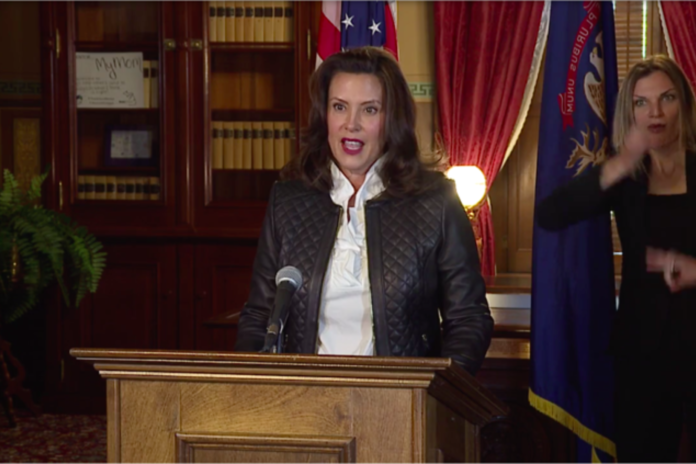(The Center Square) – The Michigan Department of Health and Human Services (MDHHS) is imposing more restrictions on indoor areas beginning Monday.
“The only way to beat COVID is to act on what we’ve learned since March,” MDHHS Director Robert Gordon said in a statement. “Wear masks. Keep six feet of distance. Wash hands. And avoid the indoor get-togethers where we have seen COVID explode.”
The order reduces from 500 persons to 50 persons the maximum gathering size for indoor gatherings such as weddings and parties in nonresidential settings without fixed seating.
The order is in reaction to evidence “that COVID’s explosive growth is powered by events where large-scale outbreaks have occurred, and that indoor settings are as much as 20 times likelier [sic] to drive outbreaks than outdoor settings,” a news release said.
However, social gatherings are only the fourth-highest total outbreak category.
As of Oct. 22, the leading total COVID-19 outbreak categories continue to be long-term care facilities (106), K-12 schools (101), manufacturing/construction (43), and social gatherings (34).
There are 12 outbreaks in Michigan associated with bars or restaurants with currently active clusters with up to 12 cases.
Bars, restaurants, and public social events can only host six people at a single table, and starting Monday, they will also be required to take names and contact information for contact tracing efforts.
Justin Winslow, president & CEO of the Michigan Restaurant & Lodging Association, said while his organization’s members appreciate the efforts to keep Michiganders safe, “We maintain, however, that a restaurant industry-specific contact tracing mandate lacks merit given existing science and data.”
Winslow cited state COVID-19 outbreak data showing despite an increase in cases, transmission from restaurants only represented about 2% of all cases the state is investigating.
“In relation to the size and scope of the industry, which serves millions of people every day and employs several hundred thousand more, this well-intended effort is more likely to result in job loss, foreclosure and fewer restaurants than it will prevent transmission,” Winslow said.
The order rolls Traverse City back to phase 4, and now enacts all regions with the same rules due to a higher COVID-19 case count.
“The orders that MDHHS has issued are centered on keeping the public safe and following best practices to reduce the spread of this deadly virus,” Chief Medical Executive Dr. Joneigh Khaldun said in a statement.
“The alarming surge we are now seeing is exactly why we were so worried about the fall season. We must remain vigilant, so we prevent long-term health consequences and unnecessary deaths, and protect our hospital capacity and the health of our frontline health workers.”
Violation of the orders is punishable by a civil fine up to $1,000, a misdemeanor punishable by imprisonment for up to six months or a fine up to $200, or both.
The state said it might revoke a business’ state-issued license or levy workplace safety violations for rule infractions.
Senate Majority Leader Mike Shirkey, R-Clarklake, responded to the new orders. Whitmer has “chosen to go it alone,” he said on Twitter.
“Earlier this week, Speaker @LeeChatfield and I again reached out to @GovWhitmer, asking her to work with us to combat our recent COVID-19 surge. Instead of taking us up on this offer, she has once again chosen to go it alone.”

















